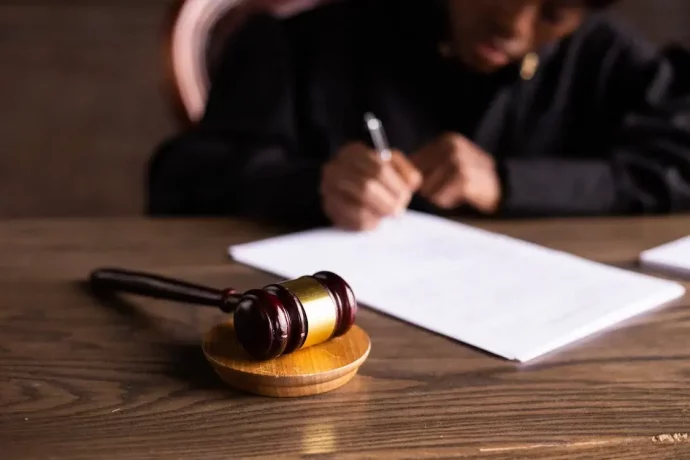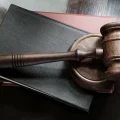What Happens If You Miss Court? Exploring Consequences of a Missed Court Date
Whether you’ve received a subpoena, been summoned as a witness, or are involved in a legal dispute, attending your scheduled court date is essential. However, life can sometimes throw unexpected challenges our way, and circumstances might arise that prevent us from appearing in court as planned.
Our Raleigh criminal defense law firm aims to shed light on the consequences that arise from missing a court date. While it’s natural to feel apprehensive about the potential repercussions, understanding the legal system’s response and the steps you can take to mitigate any adverse effects is vital.

Importance of Attending Court Dates and Fulfilling Legal Obligations
When it comes to legal matters, fulfilling your obligations and attending court dates as scheduled is of utmost importance. The legal system relies on the participation of all parties involved to ensure fairness, justice, and the proper administration of the law.
The Requirement of Personal Appearance in Court
In most legal proceedings, personal appearance in court is not merely a suggestion but a mandatory requirement. Whether you are a defendant, plaintiff, witness, or summoned for any other reason, your presence is vital for the legal process to proceed smoothly. Your testimony, evidence, and participation are crucial for the court to make informed decisions and arrive at just outcomes.
By attending court, you demonstrate respect for the legal system and the individuals involved. It allows you to present your case, defend your rights, and have your voice heard. Personal appearance enables the court to assess your credibility, observe your demeanor, and provide an opportunity for cross-examination or clarification, depending on the needs of the case and court.
The Importance of Notifying the Court in Advance of Missed Appearances
Life is unpredictable, and there may be occasions when attending a court date becomes impossible due to unforeseen circumstances. In such situations, it is essential to notify the court as soon as possible, providing a valid reason for your absence and seeking appropriate alternatives.
By notifying the court in advance, you demonstrate responsibility and respect for the legal process. It allows the court to adjust schedules, make necessary arrangements, and potentially reschedule the hearing or trial to accommodate your circumstances. Communicating your unavailability in a timely manner shows your commitment to fulfilling your legal obligations while recognizing the importance of the court’s time and resources.
Consequences of Missing a Court Hearing
Failure to notify the court in advance if you need to miss a scheduled court appearance can have severe consequences. Your absence may lead to delays in the legal proceedings, inconvenience for all parties involved, and potential negative assumptions about your intentions or credibility. In some cases, the court may issue a bench warrant for your arrest or impose fines and penalties for contempt of court.
Warrant Issuance for Arrest
When you fail to appear in court as required, the judge may issue a bench warrant, authorizing law enforcement to arrest you and bring you before the court. This can lead to your arrest at any time and can significantly disrupt your life, potentially resulting in time spent in jail until your next court appearance.
Possibility of Bond Forfeiture
If you posted bail or provided a bond to secure your release from custody before the court hearing, missing the hearing can result in the forfeiture of that bond. This means that the court may keep the money or collateral you put up as security, as a penalty for your failure to appear. It can be a significant financial loss and may complicate future attempts to secure bail.
Increased Fines or Penalties
In many cases, missing a court hearing can result in increased fines or penalties imposed by the court. The judge may view your absence as a disregard for the legal process or an attempt to evade justice, leading to more severe consequences than if you had appeared as scheduled.
Long-Term Consequences of a Failure to Appear
A failure to appear in court can damage your reputation and credibility within the legal system, making it more difficult to secure favorable outcomes in future legal proceedings. It may also erode trust between you and the court, potentially leading to increased scrutiny or skepticism in any future interactions.
Potential Impact on Your Criminal Record
Missing a court hearing can result in the addition of a separate charge for failure to appear, which can compound the legal issues you are already facing. This additional charge can have a negative impact on your criminal record, be labeled as a probation violation, and potentially affect your ability to secure employment, housing, or other opportunities in the future.
Negative Effects on Future Legal Proceedings
A missed court hearing can create a negative impression in the eyes of the court, prosecutors, and other parties involved in your case. It may lead to a loss of credibility and make it more challenging to present your side of the story effectively. Future legal proceedings, such as plea negotiations or sentencing hearings, may be influenced by your failure to appear, potentially resulting in less favorable outcomes.
Impact on Driver’s License and Insurance
In cases related to traffic violations or driving offenses, missing a court hearing can have consequences for your driver’s license and insurance. The court may issue a license suspension or take other actions that affect your driving privileges. Additionally, insurance companies may view a failure to appear as a sign of increased risk, which can result in higher premiums or policy cancellations.
Handling a Missed Court Hearing
Finding yourself in a situation where you’ve missed a court hearing can be daunting, but it’s crucial not to panic. There are steps you can take to address the situation and work towards a resolution.
Contacting the Court as Soon as Possible
The moment you realize that you’ve missed a court hearing, it is essential to take immediate action. Contact the court as soon as possible to inform them about the situation. Explain the reason for your absence, be honest and provide any supporting documentation if available. By reaching out promptly, you demonstrate a willingness to address the matter responsibly and show respect for the legal process.
Exploring Valid Reasons for Missing Court and Potential Defenses
When explaining your absence, it’s important to have valid reasons that the court may consider acceptable.
Valid reasons may include:
- A medical emergency
- A family crisis
- Unforeseen circumstances that genuinely prevented you from attending the hearing.
It’s crucial to provide accurate and detailed explanations while remaining truthful. Courts may consider valid reasons as potential defenses for your failure to appear.
Seeking Legal Advice or Representation from a Criminal Defense Lawyer
If you’ve missed a court hearing, it’s highly recommended to seek legal advice or representation from a skilled and reputable criminal defense lawyer. They have the experience to guide you through the legal process, assess your case, and provide strategic advice.
Rescheduling Court Dates and Explaining the Process
Rescheduling a missed court date will depend on various factors, including the nature of the case and the court’s discretion. Contact the court clerk or your lawyer to understand the process for rescheduling the hearing. In some instances, the court may reschedule the hearing automatically, while in others, you may need to file a motion or request for a new date.
Dealing with a Missed Traffic Ticket Court Date
Missing a court date for traffic violations like speeding, texting while driving, suspended licenses, or other DMV hearings can lead to unwanted consequences, but it’s important to approach the situation with a proactive mindset.
Specifics Related to Traffic Violation Court Dates
In many jurisdictions, traffic ticket court dates are scheduled in specific time slots or traffic court sessions. It’s essential to be aware of the designated date, time, and location of your hearing. Traffic courts often handle a high volume of cases, so being punctual and prepared is crucial.
Understanding Traffic Ticket Options and Consequences
When dealing with a traffic ticket, it’s important to understand the available options and the potential consequences associated with each choice.
Common options include:
- Pleading Guilty: When you plead guilty, you accept responsibility for the violation and may face fines, points on your driving record, and potential increases in insurance premiums.
- Contesting the Ticket: If you believe you have a valid defense or wish to challenge the ticket, you can contest it in court. This involves presenting your case before a judge and providing evidence or testimony to support your position.
- Requesting a Mitigation Hearing: In some jurisdictions, you may have the option to request a mitigation hearing. During this hearing, you can explain the circumstances surrounding the violation and request a reduction in fines or penalties.

Missed Your Court Date? Contact Kirk Kirk Law’s Expert Legal Representation Today!
If you find yourself in the challenging situation of missing a court date, don’t face the consequences alone. At Kirk Kirk Law, our North Carolina defense attorneys understand the complexities of the legal system and the potential impact a missed court date can have on your case. Our team of experienced criminal defense lawyers is here to provide you with the strategic legal representation you need to navigate this situation effectively.
Don’t let a missed court date dictate the outcome of your case. Take action today and contact Kirk Kirk Law for the trusted legal representation you deserve.
Call our talented and experienced team of Raleigh attorneys at (919) 615-2473 or fill out our online contact form to set up a consultation and initial case review.
Information presented on this website should not be construed as formal legal advice or the formation of an attorney-client relationship. Additionally, any email sent to Kirk, Kirk, Howell, Cutler & Thomas, L.L.P. or any of its lawyers at the email addresses set forth in this website will not create an attorney-client relationship.













